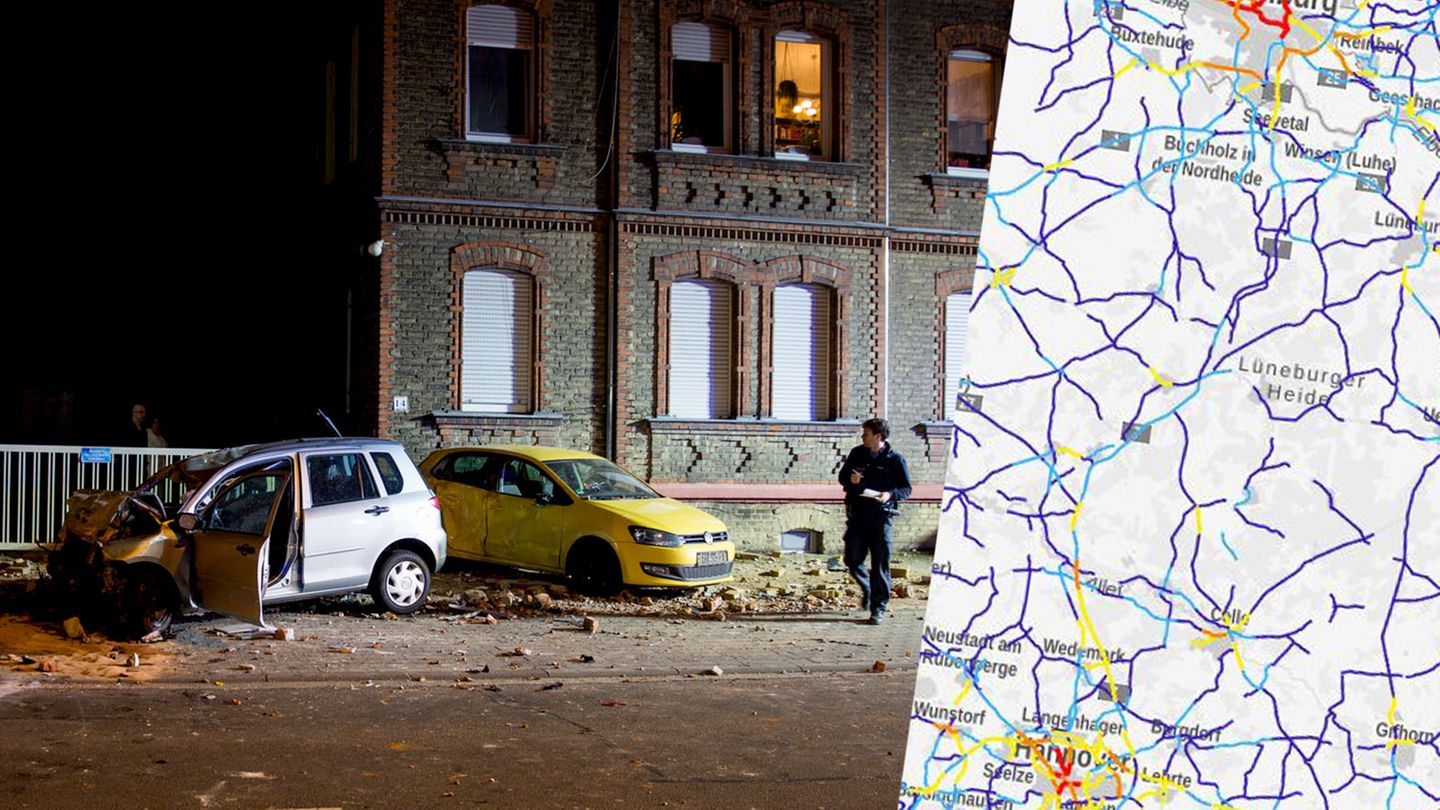Chancellor demand
Scholz: Climate penalties should not burden car manufacturers
Copy the current link
The German car industry is in crisis; in Brussels, Chancellor Scholz is critical of possible EU penalties for manufacturers. He is not alone in this.
According to Chancellor Olaf Scholz, the threat of EU climate penalties for car manufacturers next year should not put a strain on the industry. The EU Commission should find a way to ensure that fines “do not affect the financial liquidity of companies that now have to invest in electromobility, modern products and vehicles,” said Scholz (SPD) on the sidelines of an EU summit in Brussels.
According to the current EU legal situation, car manufacturers are threatened with high fines from next year because the so-called fleet limits are becoming stricter. Manufacturers will have to pay a fine for emitting too much CO2 – possibly in the billions next year. The environmental organization Transport&Environment doubts that there will be penalties of this magnitude.
This is what the election manifestos say about the penalties
Demands for fleet limits can also be found in the election programs of the CDU/CSU, AfD, SPD, Greens and FDP. The Union is calling for a review and prevention of fines. “We are committed to ensuring that German automobile manufacturers do not currently have to pay any penalties to Brussels in connection with the CO2 fleet limits,” says the SPD program.
The Greens are committed to maintaining the fleet limit values goals. “Possible fines should be extended if necessary and used to ramp up e-mobility through European programs.” The FDP wants to abolish fleet limits completely. The AfD is also calling for a repeal in its draft election program.
Commission starts dialogue with car industry in January
EU Commission President Ursula von der Leyen has now announced that she will start a dialogue on the future of the auto industry in January with, among others, car manufacturers, unions and industrial associations. The EU Commission announced that this should be about increasing demand, better financial resources in the sector and the EU climate goals.
The meetings are intended to result in recommendations that will help address the various challenges facing the auto industry. Under certain circumstances, EU laws should also be changed for this purpose. The first meeting of the dialogue is to take place under the leadership of von der Leyen, and EU commissioners are to take part in further meetings.
Criticism also from federal states and other countries
Recently, across party lines, the Prime Ministers of Bavaria, Markus Söder (CSU), Lower Saxony, Stephan Weil (SPD), and Baden-Württemberg, Winfried Kretschmann (Greens), called on the Commission to suspend the impending fines from 2025. This Friday, the Federal Council is scheduled to vote on an initiative from Saarland. It demands that the federal government should work to suspend the planned fines.
There is also criticism of possible penalties from other EU states. Italy, Poland, Austria, Bulgaria, the Czech Republic, Romania and Slovakia recently wrote a letter in which they expressed their concern that the already struggling auto industry would face further disadvantages through penalties. There are also critical voices from France.
Environmentalists, on the other hand, are pushing for the legal situation to be retained. “The pressure to change from the EU limits may be inconvenient for some manufacturers, but it is urgently needed for the climate and also for car manufacturers,” said Marion Tiemann from Greenpeace. According to Green MEP Michael Bloss, the relevant EU law must be changed in order to reduce the penalties. He sees the danger that this could be used by conservatives to weaken EU climate ambitions.
dpa
Source: Stern




